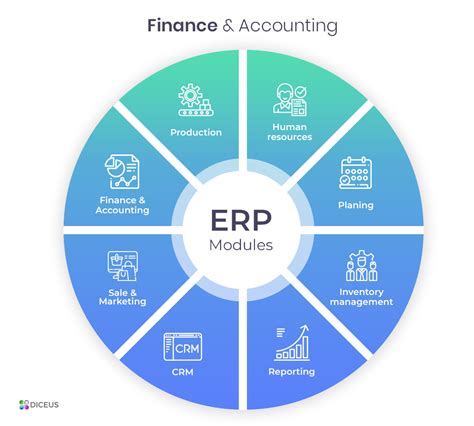The Complete Guide to the Finance Module in ERP
Enterprise Resource Planning (ERP) systems are the backbone of many modern businesses, streamlining operations and centralizing data. A critical component of any successful ERP implementation is the finance module. This module handles all aspects of a company's financial operations, from accounting and budgeting to financial reporting and analysis. This comprehensive guide will explore the key features and benefits of a robust ERP finance module, helping you understand its crucial role in achieving financial efficiency and strategic decision-making.
What is an ERP Finance Module?
The finance module in an ERP system is a centralized platform designed to manage all financial processes within an organization. It integrates seamlessly with other modules, such as sales, purchasing, and inventory, providing a holistic view of the business's financial health. This integrated approach eliminates data silos and reduces the risk of errors, enabling accurate and timely financial reporting.
Key Features of a Powerful Finance Module:
- General Ledger: The heart of the system, providing a comprehensive record of all financial transactions. This ensures accuracy and compliance with accounting standards.
- Accounts Payable (AP): Automates the process of managing vendor invoices, payments, and reconciliation, reducing processing time and minimizing errors.
- Accounts Receivable (AR): Streamlines the management of customer invoices, payments, and outstanding balances, improving cash flow and reducing bad debt.
- Fixed Assets Management: Tracks the acquisition, depreciation, and disposal of fixed assets, ensuring accurate reporting and compliance.
- Budgeting and Forecasting: Enables the creation and management of budgets, providing tools for forecasting future financial performance.
- Financial Reporting and Analysis: Generates comprehensive financial reports, offering valuable insights into the company's financial health and performance. This includes customizable dashboards and real-time reporting capabilities.
- Cash Management: Provides tools for monitoring cash flow, predicting future cash needs, and optimizing liquidity.
- Tax Management: Aids in managing tax compliance, automating tax calculations and reporting.
- Audit Trail: Maintains a complete record of all transactions and modifications, enhancing security and accountability.
Benefits of Implementing an ERP Finance Module
Implementing a robust ERP finance module offers significant benefits to businesses of all sizes:
- Improved Accuracy and Efficiency: Automation reduces manual data entry, minimizes errors, and streamlines processes, leading to significant time savings.
- Enhanced Visibility and Control: Centralized data provides a real-time view of the company's financial performance, improving decision-making.
- Better Cash Flow Management: Real-time insights into cash flow enable better management of liquidity and reduce the risk of cash shortages.
- Reduced Costs: Automation and improved efficiency reduce labor costs and minimize errors, leading to cost savings.
- Improved Compliance: Automated processes and built-in controls help ensure compliance with accounting standards and regulations.
- Enhanced Decision-Making: Access to accurate and timely financial data empowers management to make informed strategic decisions.
- Scalability and Flexibility: ERP systems can be scaled to accommodate the growth of the business, ensuring long-term value.
Choosing the Right ERP Finance Module
Selecting the right ERP finance module requires careful consideration of your business's specific needs and requirements. Factors to consider include:
- Industry-specific functionalities: Some modules offer specialized features tailored to specific industries.
- Integration with other systems: Ensure seamless integration with other business systems to avoid data silos.
- Scalability and flexibility: Choose a module that can adapt to your business's future growth.
- User-friendliness: The module should be easy to use and understand for all users.
- Vendor support and training: Reliable vendor support and comprehensive training are essential for a successful implementation.
Conclusion:
The ERP finance module is a cornerstone of efficient and effective financial management. By centralizing financial data, automating processes, and providing valuable insights, it empowers businesses to make informed decisions, improve profitability, and achieve sustainable growth. A well-implemented finance module is an invaluable asset for any organization seeking to optimize its financial operations. Understanding its capabilities and selecting the right system is a crucial step towards achieving financial success.
